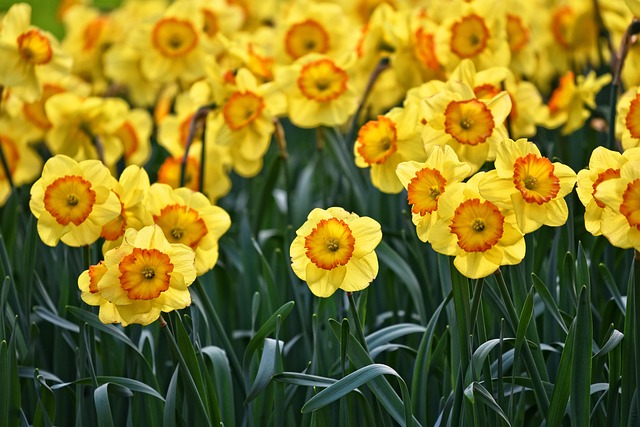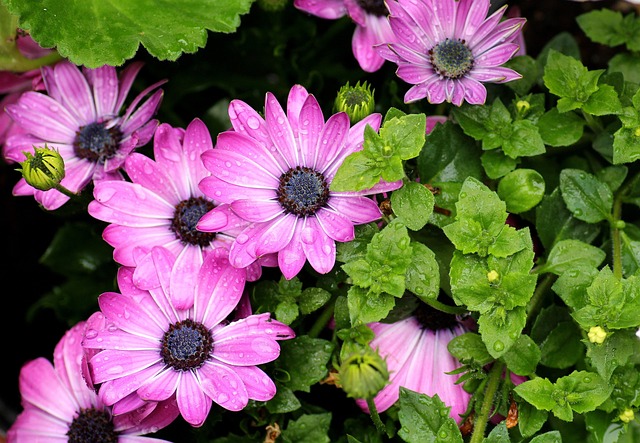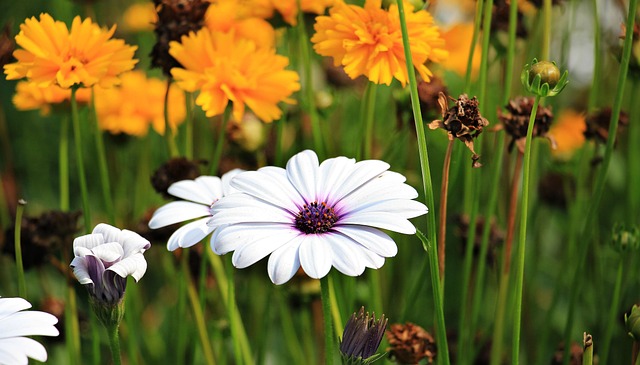Spring, summer, fall, and winter all require specific gardening techniques to maintain a healthy, vibrant landscape. Start with spring's soil cultivation and debris removal, followed by pruning and nitrogen-rich fertilization. Summer calls for deep, infrequent watering, while fall focuses on dead foliage removal and potassium-rich fertilizing. Winterization involves mulch application, pruning, and tailored fertilizing to protect plants from cold. Consistent seasonal garden maintenance, including pest control and mulching, ensures plant health and resilience year-round.
Combating pests and weeds is an ongoing task that requires strategic seasonal maintenance. From the first signs of spring to the frosty embrace of winter, each season presents unique challenges and opportunities for a lush, healthy garden. This article guides you through vital seasonal tasks, from preparing your garden in spring to protecting plants during winter’s chill. Learn about effective watering tips, fall cleanup strategies, and essential pruning techniques to keep pests at bay and ensure your garden thrives year-round.
- Spring Garden Preparation: Cultivating a Healthy Start
- Summer Watering Tips: Nurturing Plants Amidst the Heat
- Fall Cleanup Strategies: Preparing for Winter's Embrace
- Winter Garden Protection and Pruning: Safeguarding Your Flora Through the Cold
Spring Garden Preparation: Cultivating a Healthy Start

Spring marks a fresh beginning for your garden, making it an ideal time for thorough preparation. Before new growth starts, focus on cultivating healthy soil and removing any lingering winter debris. This involves raking leaves, cutting back perennials, and addressing any structural issues in your garden bed. Seasonal garden maintenance begins with these foundational steps to ensure your plants have the best chance of thriving throughout the year.
Pruning seasonal plants is an essential part of spring garden prep. Remove any dead or diseased branches while the plant is still dormant, as this practice promotes healthier growth come summer. Additionally, establish a regular fertilizing schedule tailored to each season. In spring, focus on nitrogen-rich fertilizers to encourage lush foliage and strong root systems. Remember that responsible fertilization is key; follow instructions carefully to avoid over-application, which can harm your garden ecosystem.
Summer Watering Tips: Nurturing Plants Amidst the Heat

In the height of summer, adequate watering becomes crucial for a thriving garden. As temperatures soar, plants demand more water to survive the heat stress. Summer watering tips involve deep but infrequent watering to encourage deeper root growth, making plants more resilient against drought. Early morning or late evening are ideal times to water, minimizing evaporation due to intense sunlight. Creating a consistent watering schedule ensures all plants receive enough moisture, fostering robust growth and addressing potential summer pest issues early on.
Alongside summer watering tips, preparing for the upcoming seasons is essential. After fall cleanup strategies, where debris removal and deadheading encourage healthy plant transition, winter protection measures kick in. This includes applying mulch to insulate roots from freezing temperatures and covering delicate plants with protective blankets or bringing potted plants indoors. Pruning seasonal plants according to their specific requirements and fertilizing schedules by season further strengthens their defenses against pests and weeds throughout the year, ensuring a vibrant garden despite varying seasons.
Fall Cleanup Strategies: Preparing for Winter's Embrace

As autumn arrives, preparing your garden for the upcoming winter is a crucial step in maintaining a healthy and vibrant outdoor space. Fall cleanup strategies involve several key practices that promote plant health and resilience during the colder months. One of the primary tasks is removing dead foliage, fallen leaves, and spent plants to prevent the spread of diseases and pests. Pruning seasonal plants helps shape their growth and prepares them for winter dormancy.
Additionally, establishing a proper fertilizing schedule by season ensures that your garden receives the necessary nutrients for optimal health. During fall, focusing on feeding plants with potassium-rich fertilizers can strengthen their root systems against upcoming cold temperatures. Effective watering practices throughout summer should continue into early fall to keep plants hydrated, and applying a layer of organic mulch helps insulate the soil, conserving moisture and protecting roots from extreme winter conditions. These strategies are essential components of seasonal garden maintenance, ensuring your outdoor oasis is well-prepared for the transitions ahead.
Winter Garden Protection and Pruning: Safeguarding Your Flora Through the Cold

Winter brings a unique set of challenges for gardeners, but with proper preparation and care, your garden can thrive year-round. One crucial aspect is understanding that winter garden protection involves specific techniques to safeguard delicate plants from cold temperatures. Pruning is an essential part of this process; it helps remove damaged or diseased branches, allowing better air circulation to prevent frost damage. By carefully pruning seasonal plants, you encourage new growth in spring and ensure a healthier overall structure.
In addition to pruning, creating a protective barrier with mulch is vital. A layer of organic mulch insulates the soil and roots from extreme cold, conserving moisture and preventing heaving. This simple step, combined with fertilizing schedules tailored for winter (focusing on slow-release fertilizers), ensures your garden enters spring in top condition. These seasonal garden maintenance practices, when incorporated into your routine, will help you combat pests and weeds effectively throughout all seasons.
Maintaining a vibrant and healthy garden throughout the year requires consistent care and an understanding of seasonal fluctuations. By implementing strategic spring garden preparation, efficient summer watering tips, thorough fall cleanup strategies, and effective winter garden protection and pruning, you can safeguard your flora and ensure optimal growth. Remember to adjust fertilizing schedules according to each season and employ seasonal pest control methods to keep weeds at bay. Mulching for seasonal changes is another crucial step in preserving the health and beauty of your garden all year round.
